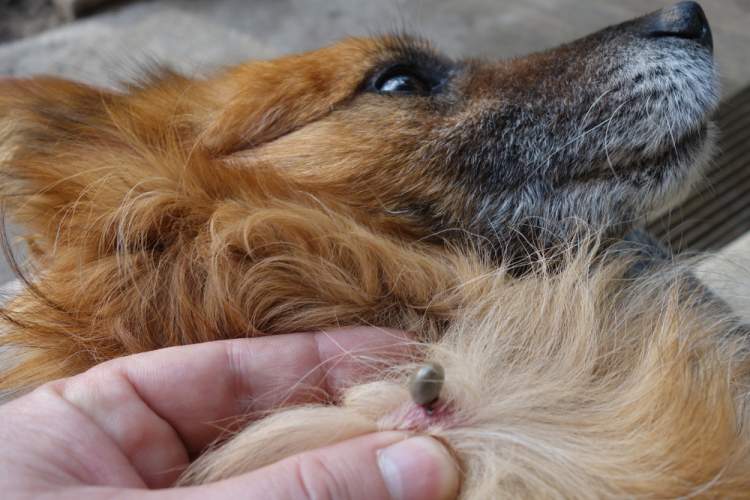Battling Flea Bites on Dogs: Prevention, Treatment, and Relief
In the world of pet care, one common issue that demands immediate attention is flea bites on dogs. These tiny pests can cause significant discomfort and distress to our furry companions. Understanding the symptoms, prevention measures, and effective treatments for flea bites is essential for ensuring the well-being of your beloved canine friend. This comprehensive guide dives deep into the world of flea bites on dogs, providing insights into recognizing the signs, preventing infestations, and alleviating your dog’s discomfort.
Identifying Flea Bites on Dogs: Symptoms and Signs
The Telltale Signs: Recognizing Flea Bites on Dogs
Flea bites can be tricky to spot, but a vigilant eye can catch their telltale signs. Watch for excessive scratching, biting, and licking, especially in certain areas like the base of the tail, abdomen, and neck. Redness, inflammation, and tiny red bumps on the skin are also indicators of flea bites. Regularly inspect your dog’s coat for fleas or their feces, which resemble tiny black specks. If you notice any of these symptoms, it’s time to take action.

Flea Bite Allergy: Unraveling Canine Hypersensitivity Reactions
Some dogs are particularly sensitive to flea bites, experiencing allergic reactions that amplify the discomfort. Known as flea bite allergy or flea allergy dermatitis, this condition can lead to intense itching, hair loss, skin inflammation, and even secondary infections. If your dog displays signs of persistent itching and discomfort, even after flea infestations are treated, flea bite allergy might be the culprit. Seeking veterinary care is crucial for proper diagnosis and management.
Prevention and Protection: Shielding Your Furry Friend from Flea Bites
Flea Prevention Basics: Building a Shield Against Bites
Prevention is the first line of defense against flea bites. Regularly groom and bathe your dog using flea-preventing shampoos. Additionally, consult your veterinarian about suitable flea prevention products. Topical treatments, oral medications, and flea collars are popular options. Ensure that your dog’s bedding, living spaces, and outdoor areas are also treated to prevent infestations. Consistency is key to maintaining a flea-free environment.
Grooming Guidelines: Maintaining Flea-Free Fur
Regular grooming not only keeps your dog looking their best but also helps prevent flea infestations. Brushing your dog’s coat helps remove adult fleas, their eggs, and debris. Use a fine-toothed flea comb to catch any lingering pests. Bathing your dog with a flea-repelling shampoo can further discourage fleas. Keep your dog’s fur trimmed, especially during warmer months, as shorter hair makes it harder for fleas to hide.
Treatment and Relief: Soothing Your Dog’s Discomfort
Taking Action: Treating Flea Bites and Infestations
When flea bites lead to discomfort, it’s essential to take prompt action. Start by treating your dog’s immediate discomfort. Calming shampoos and topical treatments can provide relief from itching and inflammation. For more severe infestations, consult your veterinarian. They might recommend prescription medications to eliminate fleas, prevent reinfestations, and address any secondary infections caused by excessive scratching.
Home Remedies: Easing Your Dog’s Itch Naturally
If you prefer natural approaches, there are several home remedies to consider. Regular baths with gentle, hypoallergenic shampoos can help soothe irritated skin. Natural ingredients like aloe vera gel, oatmeal, and coconut oil can provide relief from itching. However, it’s essential to consult your vet before using home remedies to ensure they’re safe and appropriate for your dog’s specific needs.
Paws and Prevention: Fortifying Your Dog’s Well-being in the Face of Flea Bites
With the knowledge and tools to tackle flea bites, you’re ready to champion your dog’s comfort and happiness. Your proactive approach to prevention, vigilant observation, and swift action when needed demonstrate your commitment to providing the best care for your four-legged companion. By prioritizing flea bite prevention and relief, you’re ensuring that your dog enjoys a life free from the discomfort and irritation caused by these pesky pests.
Ready to React: Equipped with Knowledge for Flea Bite Management, You and Your Dog Can Thrive
Equipped with insights into flea bite identification, prevention, and treatment, you’re prepared to tackle the challenge of flea bites head-on. Your efforts to keep your dog comfortable and healthy demonstrate the strong bond between you and your loyal companion. By staying informed and proactive, you’re embracing your role as a responsible and caring dog owner, providing the best life possible for your furry friend.
Frequently Asked Questions (FAQs) About Flea Bites on Dogs
How do I know if my dog has flea bites?
Flea bites on dogs typically manifest as red bumps, itching, scratching, and irritation. Regularly check your dog’s coat for these signs, especially in common flea hiding spots.
Can flea bites cause health problems for dogs?
Yes, flea bites can lead to health issues such as allergic reactions, skin infections, and anemia due to blood loss. Prompt treatment is crucial to prevent complications.
How can I prevent flea bites on my dog?
Prevent flea bites by using vet-recommended flea preventatives, regular grooming, cleaning your dog’s living area, and maintaining a flea-free environment.
Are there natural remedies to soothe flea bites on dogs?
Yes, natural remedies like aloe vera, oatmeal baths, and coconut oil can provide relief from flea bite irritation. Consult your vet before using home remedies.
Can fleas infest my home if my dog has flea bites?
Yes, flea bites indicate the presence of fleas. If left untreated, fleas can infest your home. Regularly treating your dog and environment is essential to prevent infestations.
Can I use human flea products on my dog?
No, human flea products can be toxic to dogs. Always use products specifically formulated for dogs and consult your vet before using any treatments.
What should I do if my dog is allergic to flea bites?
If your dog is allergic to flea bites, they may develop flea allergy dermatitis. Consult your vet for proper diagnosis and treatment, which may include medication and preventative measures.
Are certain dog breeds more prone to flea bites?
Some dogs, due to their skin and coat types, may be more susceptible to flea bites. Regardless of breed, all dogs should be protected against fleas.
Can I prevent flea bites without using chemical treatments?
While chemical preventatives are effective, you can also take preventive measures like regular grooming, maintaining a clean living environment, and using natural remedies.
How often should I check my dog for flea bites?
Regularly inspect your dog’s coat for signs of flea bites, especially after outdoor activities or contact with other animals. Early detection allows for timely treatment.
Conclusion:
Flea bites on dogs can be more than just a nuisance; they can lead to significant discomfort and health issues. By recognizing the signs of flea bites, practicing preventive measures, and promptly addressing infestations, you’re actively safeguarding your dog’s well-being. Regular grooming, consultation with your veterinarian, and a combination of professional treatments and natural remedies can provide holistic relief for your furry friend.




